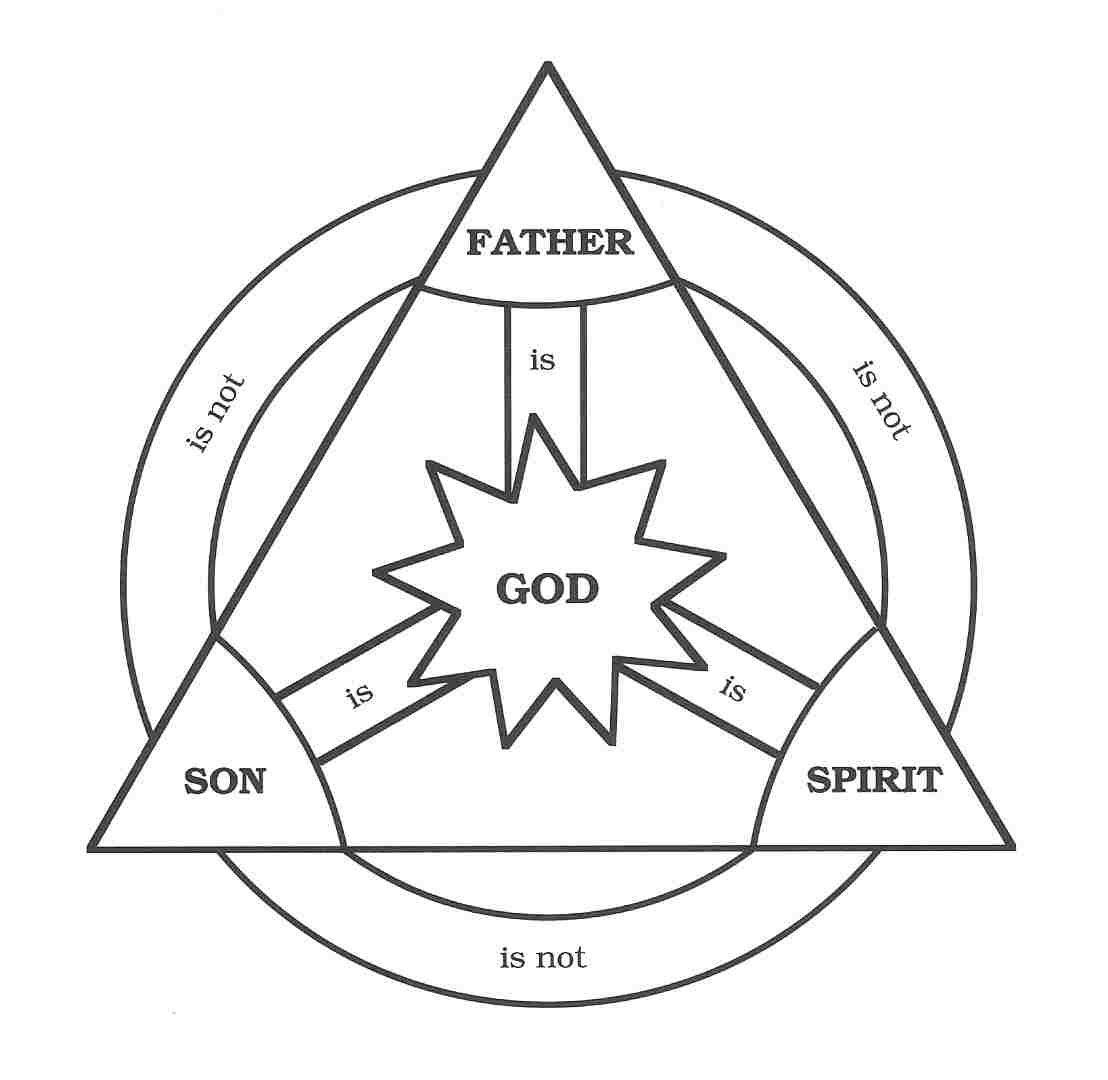
The divinity of the Father, the Son and the Spirit
The divinity of the Father, the Son and the Spirit
In the rest of this chapter, we examine the second pillar of the doctrine of the Trinity, that is, the divinity of the three persons of the Trinity, one after the other, and leave the discussion about the distinction of these three persons from each other to the next chapter. In discussing the divinity of the three persons of the Trinity, we will focus more on the divinity of the Son, which is more controversial than the divinity of the other two persons.
The father is God
The discussion about God being the father turns into a discussion about God being the father. We talked about this issue to some extent in the first chapter. The concept of God’s fatherhood also exists in the Old Testament. First, God’s relationship with the people of Israel is likened to the relationship of a father with his son.
In the story of Israel’s liberation from Egyptian captivity, God tells Moses: “Say to Pharaoh, this is what God says: Israel is my son and my firstborn, and I say to you, let my son go so that he may worship me” (Exodus 22:04- 23).
In Deuteronomy, we read that God carries Israel like his little son: “You also saw in the desert how the bridegroom of your God carried you like one who carries his own son, all the way you went until you arrived here.” (Deuteronomy 31:1). One of the most beautiful passages is Hosea 1:11-11, in which God’s love for the people of Israel is compared to the love of a father and is described with all beauty and tenderness. In this episode, we see that God takes care of his people with a fatherly love
The divinity of the Father, the Son and the Spirit
I loved Israel when he was a child, and I called my son out of Egypt… I taught Ephraim to walk and took him in my arms, but they did not know that I had healed them… I drew them into bonds of love. And because of them, I was like those who remove the yoke from their necks and set food before them… How can I leave you, O Ephraim, and how can I surrender you, O Israel? … My heart is turned inside me and my sorrows are ignited together.
Second, in some cases, the word “Father” is not used as a name but as a simile and metaphor for God. For example, in Proverbs 1203, we read: Because God disciplines those whom he loves, as a father disciplines his child, who pleases him. For example, we read in Deuteronomy 6:32: “Do you punish God like this, O foolish and ignorant people?” Is he not your father and owner? He created you and established you.

God’s fatherhood in the Old Testament usually has one of the following meanings:
1) Being a creator, especially creating his own people, Israel (Deuteronomy 6:32; Malachi 10:2). 2) The special relationship with the king of Israel as God’s adopted son (Psalm 2; 2 Samuel 1407; Psalm 28-26089). 3) God provides for his children and protects them Hosea 1:11-11) 4) God as a father deserves to be obeyed. 5) It expresses God’s compassion and love to some extent, but not mainly (Hosea 1:11-49, Psalm 13:103).
Although the concept of God’s fatherhood exists in the Old Testament and God is called “Father” in the Old Testament, he is not called “Father” anywhere in the Old Testament. The closest passage to such an application is Isaiah 764-8, where God is called “Father” in prayer:
“But now, O Lord, you are our new father. We are flowers, and you are our creator, and we are all creations of your hands. But even in this verse, God is not addressed as “Father” but as “God”.
In other words, in the entire Old Testament, there is no case in which a nation prays to God with a member of the nation:
“Father, some may call him father and have a proper relationship with him as children, but they were not yet ready for such a close relationship. The verses infer that it was God’s will that his fom Jeremiah 1903; 9031; Malachi 601).
In the New Testament, we see a big leap in using the name Father for God, especially the use of the title Father in addressing God, which was the result of the influence of Jesus.
Jesus Christ, in an unprecedented way, turned the relationship with God as the Father into one of the most important pillars of his life, service and teachings. He not only called God “Daddy” himself, but also introduced him as the heavenly father to his disciples, encouraging them to call God the father in prayer and trust him as a merciful father.
God’s fatherhood in the life and teachings of Christ briefly included these characteristics: God’s intimacy and closeness in prayer, God’s compassion and mercy in forgiveness of sins, God’s glory and knowledge and unlimited power over the world, answering prayers and giving good gifts to believers. God’s firm will in giving the kingdom to the children, and protecting the children from danger and taking care of their needs.
In the writings of Christ’s disciples and apostles, the truth of God’s fatherhood and, as a result, God’s fatherhood, is not only fully assumed, but also expressed many times (for example, Ephesians 20:1, 3, 17; 18: 2; 1403).

Therefore, in all the revelation of God throughout history that is available to us in the Bible, both in the Old Testament and in the New Testament, God is introduced as “Father”, this revelation about God as Father, especially in God’s relationship with Jesus as the Son of God gained an unprecedented power and clarity. This issue leads us to the discussion of the divinity of Christ.
Today in the article : The divinity of the Father, the Son and the Spirit We reviewed useful information about the Bible and the way of Jesus. If you wish, you can view other articles of Ali Vahidi about Christianity





